The Russians don’t like his opponent, but if Volodymyr Zelensky is elected president, there’s no guarantee he’ll toe Putin’s line, argues Steven Pifer. This post originally appeared in The Washington Post.
If voters in Ukraine elect television star Volodymyr Zelensky president Sunday, as seems almost certain, that should please the Kremlin, which in the course of supporting rebels in the eastern regions of Ukraine has made clear its dislike for incumbent Petro Poroshenko. Zelensky, a political neophyte who plays a teacher unexpectedly elected president in the TV show “Servant of the People,” handily won the first round of the election March 31. Polls suggest he will beat the president in the runoff by as many as 30 points, and to the Kremlin, he must seem like a much more malleable figure.
That doesn’t mean he will be. Champagne corks popped in Moscow in November 2016 when Donald Trump unexpectedly won, and he has been a major disappointment for Putin, who wanted a change in Washington’s Russia policy. Zelensky could foil the Russians in exactly the same way.
Zelensky has no policy track record. During the campaign, he avoided detailed platform proposals, media interviews or political rallies, preferring instead to let his TV persona define his image. He could make mistakes — huge mistakes — as president. But he is no dummy: He built a successful business empire, and he may not be as prone to manipulation as Putin would want.
So far, none of his professed foreign policy views would please the Kremlin. He blames Russia for the war, calls on Moscow to return both Crimea and the Donbass and says he will pursue Ukraine’s course of integration into Europe, including joining the European Union and NATO.
As for dealing with Moscow, Zelensky and close associates say he is ready to sit down with Putin, but only after working out an approach with Ukraine’s Western partners. Zelensky wants to add the United States and Britain to the current “Normandy” negotiating format of France, Germany, Ukraine and Russia that seeks to find a settlement to the conflict in the Donbass.
What’s more, Zelensky asserts that he will give priority to the anti-corruption fight as well as build a stronger, open economy — the issues that drew voters to him. He has on his team proven change agents such as Olexandr Danylyuk and Aivaras Abromavicius, who as ministers implemented some of the most significant changes made during Poroshenko’s presidency.
Corruption weakens the Ukrainian state, and Russia exploits that. If Zelensky can curb corruption, including the outsize political influence of the country’s oligarchs, he will cut Russian levers of influence. Likewise, if advisers such as Danylyuk and Abromavicius can help him improve the economy, establish real courts, draw foreign investment and increase growth, that will bolster Ukraine’s overall resilience. Putin and the Kremlin hardly want as a next-door neighbor a Ukraine that beats corruption and expands its economy, all while abiding by democratic norms; that could well cause the Russian people to question their own system.
Zelensky’s critics question his ties to oligarch Ihor Kolomoisky, owner of the television station that broadcasts “Servant of the People.” Zelensky denies he is Kolomoisky’s puppet. While that relationship remains murky, there presumably would be a check in place. As finance minister, Danylyuk was no friend of Kolomoisky, having helped nationalize the bank co-owned by the oligarch after charges of financial irregularities. (That fight is still playing out in the courts.)
In any case, Kolomoisky provides no comfort to Moscow. He has strong anti-Russian credentials. He spent a year as governor of Dnipro, holding that region in line when many feared it might fall victim to the Russian-inspired violence that began in the Donbass.
Finally, presidential authority is not unlimited. The president shares power with the Rada (parliament), which has its own elections in October, and a prime minister appointed by the Rada. The prime minister selects most cabinet ministers.
The Rada will continue to support Ukraine’s pro-European course and oppose anything that looks advantageous to Moscow. In February, Rada members voted 334-17 to amend the Constitution to fix membership in the European Union and NATO as the country’s strategic objectives.
Moreover, the majority of Ukrainians favor the pro-European course. The government’s decision in late 2013 to delay signing an association agreement with the European Union brought hundreds of thousands into the streets and triggered the Maidan Revolution. A recent poll showed 58 percent are in favor of joining the European Union as opposed to 22 percent against. The numbers favoring NATO membership were 46 percent to 30 percent. This is one unintended — but hugely significant — consequence of Putin’s aggression against Ukraine.
Yes, Zelensky remains unproved. He might lead Ukraine down a road filled with pitfalls. But he also could adopt policies that would strengthen the country internally, continue its course toward Europe and stand up to Russia. Moscow then would have to decide whether it wants to continue its ugly, undeclared war or whether it is time for a settlement.
The Brookings Institution is committed to quality, independence, and impact.
We are supported by a diverse array of funders. In line with our values and policies, each Brookings publication represents the sole views of its author(s).


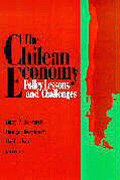
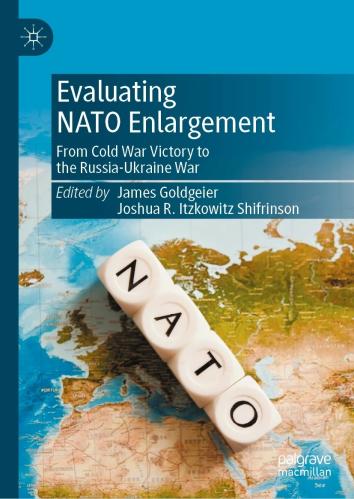
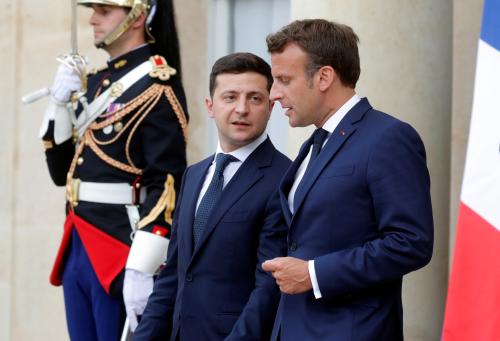
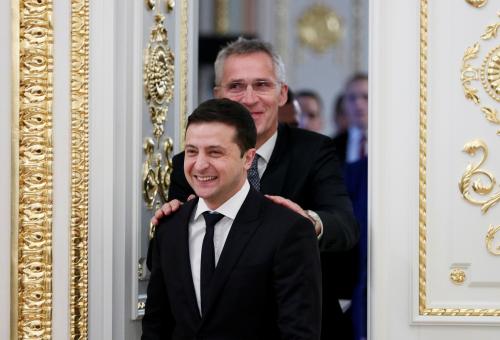
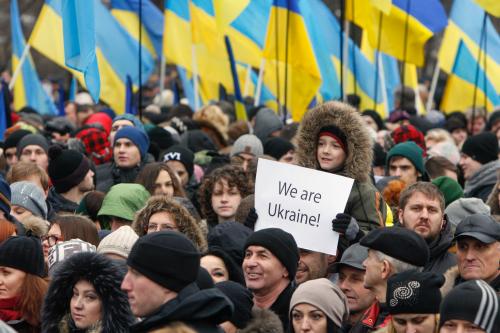




Commentary
How Ukraine’s comedian-candidate could disappoint the Kremlin
April 22, 2019